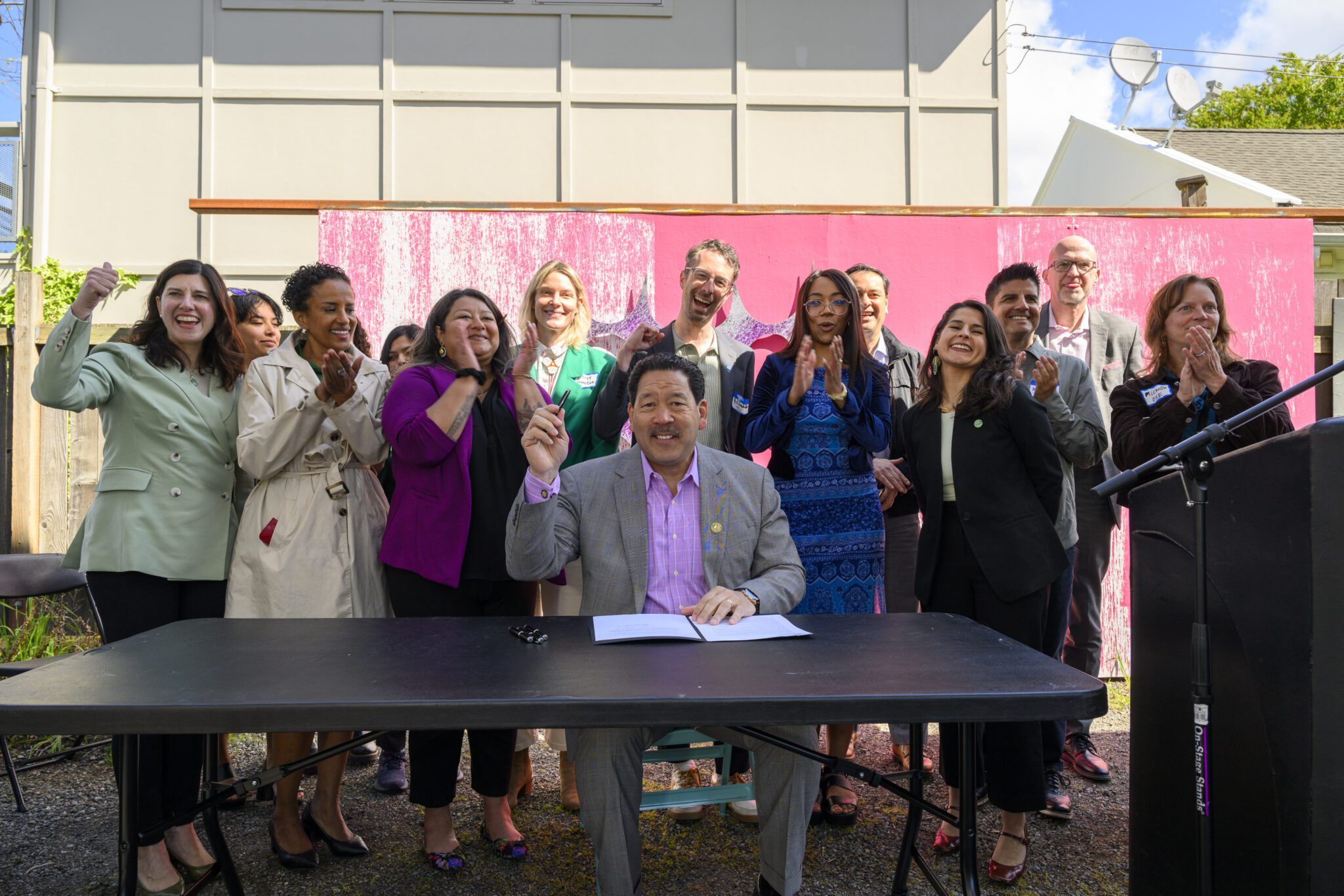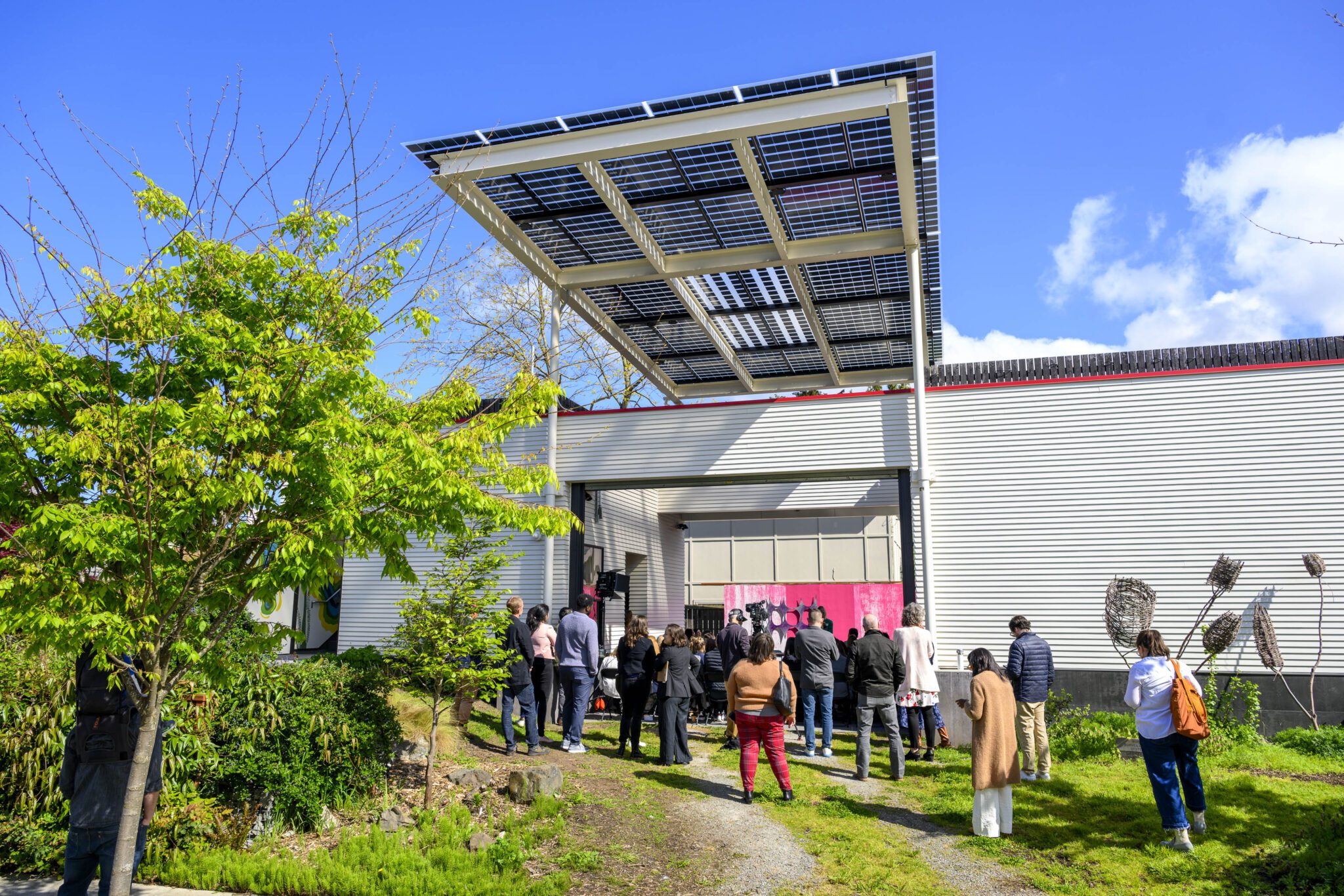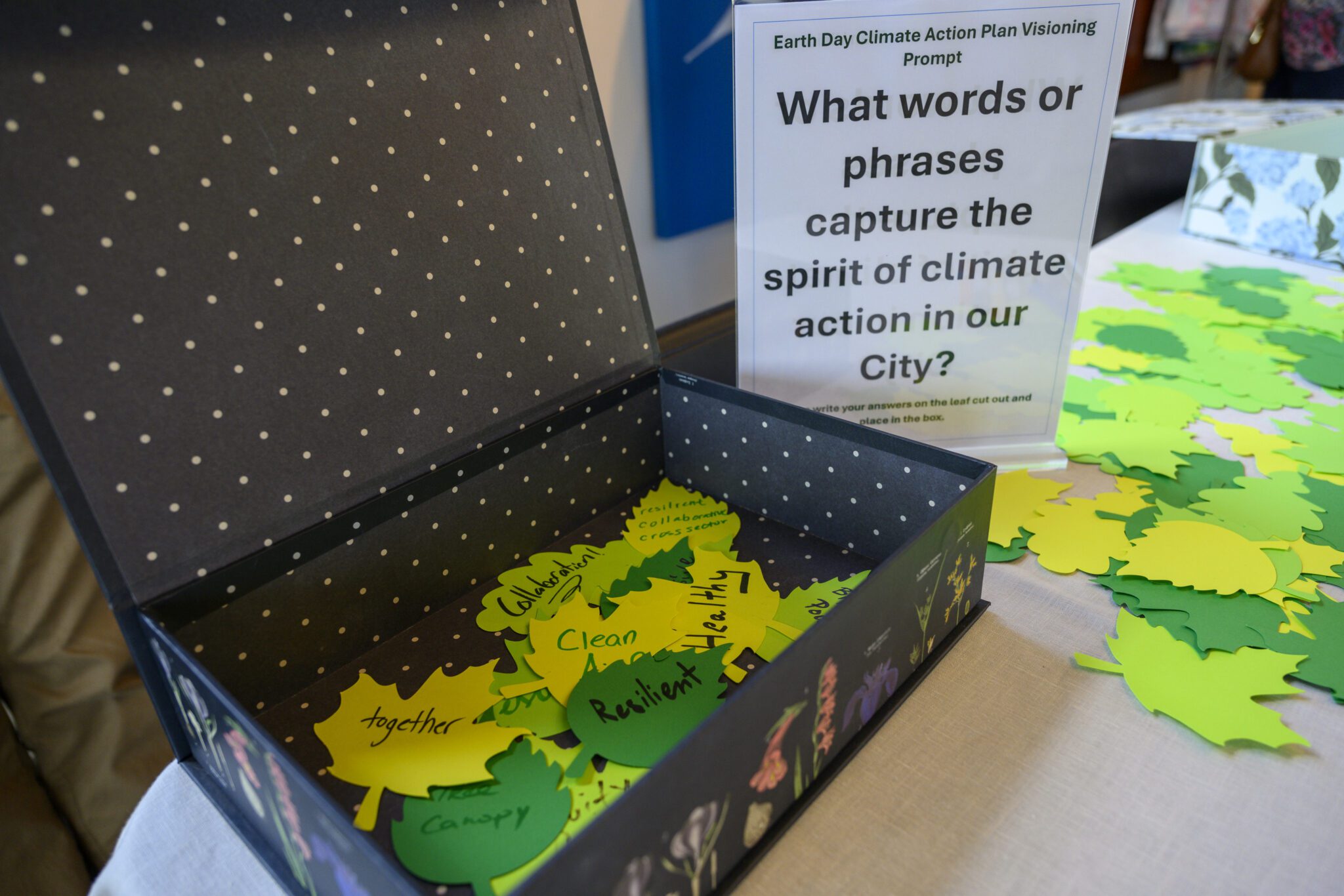
Seattle – Today, on Earth Day, Mayor Bruce Harrell issued an Executive Order directing City departments to respond to Seattle’s current and future climate challenges with a focus on building resilience, growing a green economy, and reducing greenhouse gas emissions (GHG) from transportation. The Executive Order calls for a suite of new actions, meaningfully updating the City’s current Climate Action Plan (CAP) for the first time since its release 12 years ago in 2013.
“Climate change is impacting more parts of daily life than it did a decade ago. Hotter summers are making living and working more uncomfortable and often dangerous. Severe storms are damaging infrastructure and flooding homes, pollutants are worsening air quality, and much more,” said Mayor Harrell. “By signing this Executive Order, I am directing City departments to work as One Seattle with our community, governmental, and business partners to develop a new Climate Action Plan laying out long-term actions to build a more resilient City, create good-paying green jobs, and protect the health of our communities.”
Key aspects of the Climate Action Plan directive in the Executive Order include:
- Audit the 2013 Climate Action Plan actions and publish a progress report in Q3 2025.
- Add new actions into the Climate Action Plan to increase climate resilience and adaptation, support building a green economy, and secure protections for public health.
- Conduct inclusive engagement with most impacted communities, develop an advisory panel, and collaborate with Tribal governments, private sector, and others.
- Deliver a new Climate Action Plan by Q3 in 2026.
- Evaluate and recommend revenue-generating policies, investment strategies, and projects by Q4 2026 to support CAP implementation.
- Develop new framework to enhance how we monitor, evaluate, and report on the actions.
In December, Seattle released the 2022 GHG inventory, finding that while emissions have declined 12% from the 2008 baseline, the City needs to move faster to meet its carbon neutral by 2050 goals. Transportation is the largest source of climate emissions in Seattle, responsible for nearly 60% of all emissions.
“Seattle takes bold, effective climate actions backed up by data. The numbers show that we must reduce climate pollution faster than ever, especially in the transportation sector — the number one source of emissions in Seattle,” said Deputy Mayor Jessyn Farrell. “While the CAP will support long-term planning for a more resilient future, we must also secure near-term reductions through high impact strategic opportunities to make eco-friendly transportation options more accessible and connect underserved communities.”
Key high impact near-and medium-term transportation actions in the Executive Order include:
- Implement strategies to encourage 80% of attendees arrive to the FIFA World Cup using public transportation, shared mobility, walking, biking, or other methods not including using personal vehicles.
- Continue to develop three Low-pollution Neighborhoods (LPN) by 2028 and develop an LPN implementation and funding plan to inform the investment of $8M in Transportation Levy Funding by Q1 2026.
- Accelerate Transportation Electrification (TE) efforts and explore opportunities to install public charging at municipal sites, launch e-cargo bike program, electrify the city fleet, and more.
- Implement Transportation Demand Management Strategies in conjunction with Revive I-5, a multi-year effort to rehabilitate Interstate 5 in Seattle.
- Pursue renewal of the Seattle Transit Measure to ensure sustainable transportation options for Seattle residents and visitors beyond 2027.
Mayor Harrell continued, “Despite the Trump Administration’s disinvestments in and opposition to climate action, Seattle will not back away from the work that needs to be done to protect our environment and adapt our city to the changing climate. We will continue to enact bold policies and programs that advance environmental justice, build community resilience, and reduce our greenhouse gas emissions for a healthier future for our city.”
Seattle has recently implemented and expanded several significant policies and programs to reduce emissions from buildings; electrify vehicles for moving people, goods, and services; and expand food waste prevention to increase participation in composting, deconstruction, and reuse programs.


What People Are Saying:
Councilmember Alexis Mercedes Rinck, Position 8
“The climate crisis is bearing down on us and the time for action is now. As the chair of the Sustainability, City Light, and Arts and Culture Committee, I’ll be working with the Mayor’s Office and city departments to ensure the new Climate Action Plan includes transformative change to support our green energy future and a healthy next generation. Seattle should be leading the nation in showing how a Green New Deal can transform a city while leaving no one behind.”
Lylianna Allala, Interim Deputy Director, Office of Sustainability and Environment
“It is undeniable: the impacts of climate change hit low-income and communities of color first and worst. Communities have been developing their own innovative, culturally relevant climate solutions to meet their unique needs — from hosting neighborhood block parties to help families prepare for extreme weather, to giving away supplies and teaching people do-it-yourself box fan air filters ahead of summer wildfires. In the updated Climate Action Plan, Seattle will center community voices, needs, and solutions to ensure we don’t leave people behind as we continue to adapt to a changing climate. OSE and our City colleagues look forward to working closely with local groups to envision and act on strategies that work toward a healthy, thriving, and resilient Seattle now and for future generations.”
Adiam Emery, Interim Director, Seattle Department of Transportation
“This Executive Order accelerates the meaningful, on-the-ground work needed to reduce transportation emissions and build a more climate-resilient Seattle. By helping people shift to more sustainable ways of getting around—like walking, biking, transit, or carpooling—we’re not only cutting emissions, we’re improving public health, safety, and access. Every dollar we invest in these options brings nearly ten times the return for our communities.”
Andrew Lee, General Manager and CEO of Seattle Public Utilities
“Seattle Public Utilities is deeply committed to serving our communities and reducing greenhouse gas emissions – both in our operations and through our waste prevention initiatives. In addition, we’re preparing for climate change impacts by increasing system and community resilience, particularly for the most vulnerable in our city. We’re proud to support this Executive Order and work with City of Seattle departments and diverse community partners to set greater ambitions for the next decade of climate resilience and action in Seattle.”
Dawn Lindell, General Manager and CEO of Seattle City Light
“Seattle City Light is more than just a power company. We see ourselves as environmental leaders, providing dedicated wildlife and resource protection, environmental education, and stewardship to ensure a sustainable energy future. We’re proud of the fact that we were the first utility in the nation to become net carbon neutral and have remained so since 2005. We welcome the opportunity to join all City of Seattle departments in supporting the Climate Action Plan update.”
Nathan Torgelson, Director, Seattle Department of Construction and Inspections
“Seattle remains a national leader in the creation of a safe and livable built environment, using innovations in energy efficiency to eliminate pollution and to help City Light meet all our needs with clean power.”
Jenifer Chao, Director, Seattle Department of Neighborhoods
“At the Department of Neighborhoods, our mission is rooted in community building and enhancing quality of life. We have seen firsthand the harmful effects of climate change on neighborhoods across the city. As we work together as One Seattle, we are committed to advancing community-led solutions that protect community health and uplift those most impacted by climate change.”
AP Diaz, Seattle Parks and Recreation Superintendent
“Facing the climate emergency head on, Seattle Parks and Recreation champions sustainable actions and the promotion of environmental justice. We’re proud to support this Executive Order to help advance our City’s goals for a Thriving Environment. From reducing our climate footprint to instituting Nature-based Solutions, we’re committed to conserving natural spaces and creating a healthier, more inclusive future for our communities – ensuring Seattle truly shines for everyone.”
Kiersten Grove, Director, Finance and Administrative Services
“The Department of Finance and Administrative Services is committed to promoting sustainability in our City buildings and green fleet vehicles, which reduces our carbon footprint, creating a healthier, more resilient city. FAS is proud to join other City departments in implementing fleet and building management policies that will have a positive impact on our planet.”
Patience Malaba, Executive Director, Housing Development Consortium
“Affordable housing is a part of climate change solutions. It protects our most vulnerable communities — individuals and families with low incomes, disabilities, living in overburdened areas, or recently unhoused. Affordability cannot be achieved in isolation; it depends on the strength and health of the communities where people live. Without investing in resilient, supportive neighborhoods, our housing efforts will struggle to meet their promise. The Housing Development Consortium is committed to working collaboratively with City partners and community stakeholders to ensure that affordable housing continues to be a practical, scalable, and lasting part of Seattle’s new Climate Action Plan.”
Kate Johnson, Regional Director for North America, C40 Cities
“Seattle is once again proving that what is good for the planet is good for people. Cities across the U.S. and around the world are leading the way to a better future by delivering action that tackles climate change and improves lives. Seattle’s Climate Action Plan update will identify new ways to improve health, safety, and affordability for local residents. C40 Cities is proud to partner with Mayor Harrell and we look forward to supporting the Office of Sustainability & Environment as they implement this new order.
Kirk Hovenkotter, Executive Director, Transportation Choices Coalition
“If we are going to slow the climate crisis, we must make transit, biking, and walking the first choice for more Seattleites. We were proud to help lead the passage of the largest levy in city history to make investments in our streets, trails, and transit. On this Earth Day, we know the work isn’t done yet. This executive order commits the City to go further, at a time when our federal government is pulling us backward. Transit riders will benefit, and we are excited to see it put into action.”
Emily Kelly, Executive Director Mini Mart City Park
“We know climate resiliency must be rooted in community. Transforming the contaminated site of Mini Mart City Park into a resilient public green space that is safe, healthy, and thriving couldn’t have been accomplished without the steadfast support and civic partnerships that have made this project possible.”
Susan Dickerson-Lange, Director, UW Climate Impacts Group
“The Climate Impacts Group is a longstanding partner of the City of Seattle, and we are proud of the work we have accomplished together so far. We look forward to continued collaborations as the city updates its Climate Action Plan, and we remain committed to providing climate science and tools that will support community resilience for people in the city and the region.”
Edwin Wanji, CEO, Sphere Solar Energy
“We are in the midst of a climate emergency and the City of Seattle has supported Sphere in advancing workforce training opportunities for aspiring clean energy professionals – electricians, solar installers, EV charging technicians – recruiting talent from our underrepresented communities to ensure we all benefit from the transition to a carbon-neutral economy. As a local installer of solar, EV and battery storage, Sphere Solar Energy recognizes the City’s bold action towards electrification, and we are ready to help scale the City’s initiatives to achieve climate resiliency for our residents, businesses and community at large.”
César García and Peggy Hernandez, Lake City Collective
“It’s undeniable that climate change is here, and for some communities, the effects have been here for a long time. An update to the Seattle Climate Action Plan is a necessary document, a reality check of our progress, on how our city’s bold goals for 2030 & 2050 have been, and should continue to be, translated into action in direct partnership with those communities most impacted.”
Emily Pinckney, Green New Deal Oversight Board Leadership
“This new Climate Action Plan is more than a plan. It’s a promise. A promise to act boldly, to act together, and to act justly. We will build on the strength and vision of our ancestors—the ones who protected the land, the water, and each other. We will build on the work of our communities, who’ve fought for environmental justice for decades. Their legacy will live in this plan, and in the commitments we make today.”
Sean Bagsby, Business Manager/Financial Secretary, International Brotherhood of Electrical Workers (IBEW) Local 46
“Over 400 Washington residents died in the 2021 heat dome and these events are only going to become hotter and more frequent. We need life-saving heat pumps, smoke filtration, and backup power in every workplace and home in our city. Our union stands ready to partner with the City to get this job done.”
Dr. Ileana María Ponce-Gonzalez, CHWCMR
“With each step toward sustainability, we honored Earth Day and adopted Seattle’s Climate Action Plan. Together, we address the 60% impact of transportation on climate pollution in Seattle, elevate BIPOC communities, and forge pathways for workforce development and thriving green industries. A future of equity, resilience and prosperity starts here.”
Tracy Morgenstern, Carbon Neutral Cities Alliance
“Seattle is again setting an inspiring example for cities around the world by leading with climate action that advances social justice and improves livability.”